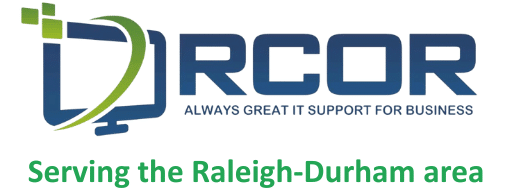In 2025, SOC (security operations center) services are vital considering the degree of cyber threat, and regulatory threat that businesses are exposed to.
The SOC benefits are the pulse of an organization’s cybersecurity ecosystem, and it interacts and orchestrates monitoring, detection and incident response. For small businesses in Raleigh and Durham, the more they understand from a service and model perspective that SOC services provide, the better small businesses can protect valuable data, mitigate risks, and comply with their digital ecosystems.
1. Continuous monitoring & threat detection
Perhaps the most significant advantage SOC delivers is the 24/7 visibility of your and your employees’ network activity.
A SOC is constantly circling all activity on your network looking for anomalies, if an anomaly is found it can provide an early warning to reduce the risk of a breach. As of 2025, very few assets can give businesses efficiencies with speed, accuracy, and efficient use of resources; there is nothing like SOC.
A SOC team is in the background, continuously scanning for current threats, while learning from hundreds of libraries of machine learning algorithms to assist with the speed of threat detection.
2. Faster incident response
When a cyberattack is in progress, it is all about speed. SOC services provide a company a structured playbook or team of designated responders that can either remotely respond to, or process the alerts received.
SOC associates can respond faster to incidents. Once the SOC has engaged in a cyber incident, whether it be malware or phishing or ransomware, then speed becomes the most valuable asset.
It can quickly contain the threat (while it is regrettable for the organization), and engage in the fallout, restore productivity, minimize downtime, and reduce or limit the loss of revenue.
3. Cost saving & efficiencies
I appreciate that SOC services are expensive to coordinate. What do you do? However, I feel it would be difficult for anyone to argue that if/when a major breach does occur, the average organizations costs (recovery costs, fines, reputational costs, loss of productivity) , will not outweigh the cost of having SOC ongoing costs.
The cost of not having SOC as part of your insurance strategy is simply subjective; furthermore, you have the option of using outsourced SOC if you require enterprise-level protection but do not want the in-house costs associated with an SOC.
4. Regulatory compliance & reporting
Compliance is no longer an option. Adherence to frameworks like HIPAA, PCI, GDPR and other regulatory structures means entities entering a SOC will meet strict data protection with no effort on their part.
SOCs simplify the organizational process of compliance by conducting regular audits, creating audit and evidence reports, and systematically keeping policies aligned with requirements in a living document.
So, organizations will increase their resilience and decrease risk for fines, while also building trust with their customers by showing them how seriously they are taking their compliance.
5. Proactive Threat Hunting
Modern SOCs do not simply wait for notification; indeed, dedicated threat hunters make continued active searches for disguised threats in organizations networks to identify attackers before they do any damage.
This proactive approach is vitally necessary in 2025 when an attacker’s strategy is to use stealthier, persistent methods circumventing traditional defenses.
6. Scalability for Client Growth Needs
As an organization’s business needs grow, so do its security needs. SOC models, regardless of being outsourced, in-house, or hybrid, provide scalable protection to adapt to new requirements.
Not every organization can afford to cover the risk of inadequate protection or waste money protecting things they don’t need to protect as their needs grow.
7. Customer and Community Trust
Internal cybersecurity is only part of the puzzle; organizational trust is a difficult asset to build.
Clients and community stakeholders are more likely to trust businesses that demonstrate they have a high level of data protection aligned with clear SOC reports, assessments, and transparency. In the end, trust is a differentiator in business.
8. Integration of Technologies
Today’s SOCs must seamlessly integrate with today’s modern tools: Cloud environments, IoT devices, artificial intelligence, etc.
SOC practice requires a modern manufacturer, but as organizations face growing and developing threats, it also supports the crucial convergence of IT and management, enabling productivity, change, and further organizational resilience.
9. Long-Term Business Resilience
Maybe the most important point regarding SOC is business continuity. A cyber incident has the potential to cripple a small business; therefore, the organization’s SOC must be organized to minimise disruption and the likelihood of judgment day/extreme downtime.
A SOC can align security with an organization’s business value proposition and protect its revenue streams, values, reputation, and the growth it wants to achieve.
Identifying the Right SOC Model
Organizations identify that there is no right SOC for everyone. Small businesses have to think about the benefits of using an outsourced managed SOC, an in-house SOC, or a hybrid SOC.
Outsourced SOC is certainly budget-friendly and provides 24/7 expertise; however, in-house SOC provides operational control and customization to suit the organization’s needs.
The hybrid model tends to be a balance of the two. The right answer depends on the organizations available resources for tools, compliance mandates, and future growth.
Why the benefits of SOC matter in 2025
The benefits of SOC are much broader than cybersecurity; it is about compliance, cost-containment, and trust. The right SOC model will allow small businesses to continue to progress without concern and provide a strong defence against constantly evolving threats.
RCOR helps Raleigh businesses and Durham businesses sort through SOC scenarios for growth and evaluate where security fits within they business.
Suppose you are looking for a prototype of an outsourced managed SOC or a hybrid SOC. In that case, we are here to help implement frameworks specific to your objectives to protect your most valuable asset.
Reach out today to understand how a SOC model could assist your security and resilience in 2025 and beyond.

